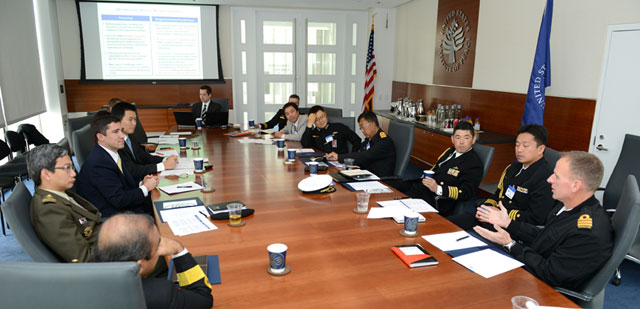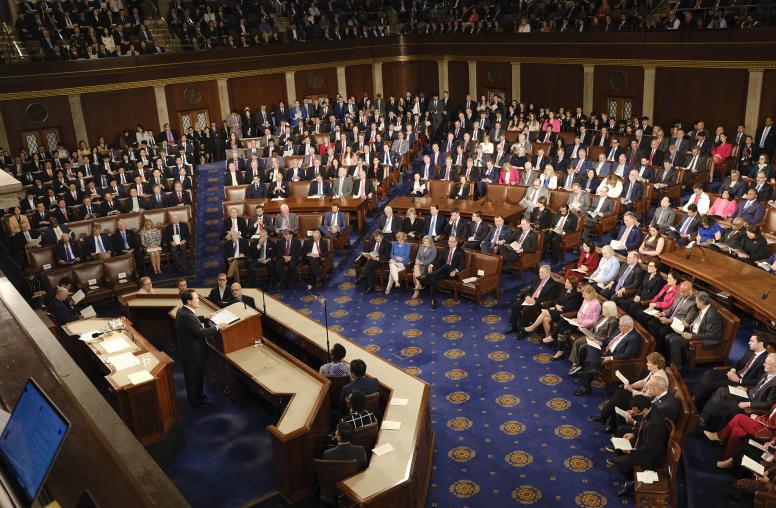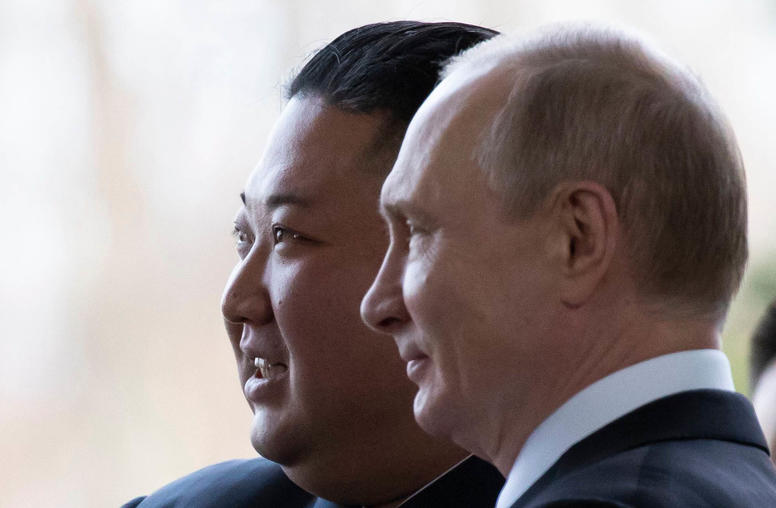USIP Launches Roundtable Series with Asia-Pacific Naval Attaches
The U.S. Institute of Peace (USIP) on November 7 launched what will be a series of discussions drawing together naval attachés representing Asia-Pacific countries in Washington with regional and U.S. policy experts. The aim is to help the naval attachés better understand U.S. policy-making and analytical perspectives, helping their governments to shape informed responses to U.S. strategy in a strategically vital and changing region that is the locus of numerous security, diplomatic and economic issues.
November 8, 2012

The U.S. Institute of Peace (USIP) on November 7 launched what will be a series of discussions drawing together naval attachés representing Asia-Pacific countries in Washington with regional and U.S. policy experts. The aim is to help the naval attachés better understand U.S. policy-making and analytical perspectives, helping their governments to shape informed responses to U.S. strategy in a strategically vital and changing region that is the locus of numerous security, diplomatic and economic issues.
The USIP initiative reflects the heightened need to share views on strategic issues among the attaché corps, particularly in light of the U.S. government’s “rebalancing” of foreign policy to the Asia-Pacific region, said Aaron Austin, a lieutenant commander with the U.S. Navy and currently a USIP interagency professional-in-residence. A Northeast Asia specialist, Austin is managing the series.
“Briefings and conversations with experts drawn from the academic and policy-making community offer attachés an opportunity to more fully understand U.S. perspectives and those of their colleagues within the attaché corps,” said Austin.
The new roundtable series taps into USIP’s role as a quasi-governmental convening authority in efforts to advance cooperation, understanding and network-building among those in a position to encourage the peaceful management of conflicts and international disputes. It also brings USIP’s capabilities, training tools and educational opportunities to the attention of an international audience involved with security issues. At the same time, the effort should help build the international engagement of the U.S. Navy and further inform U.S. military and civilian officials on the views of Asia-Pacific military establishments. Some of the future meeting topics might be instigated by the naval attachés themselves, said Austin.
The inaugural session on November 7 featured John Park, a former USIP senior program officer and Northeast Asia specialist. He is with the Security Studies Program at the Massachusetts Institute of Technology and the Managing the Atom Project at Harvard University’s Kennedy School of Government.
Park described USIP’s Northeast Asia Track 1.5 projects, which have brought together current and former officials from the United States and the region with other policy experts for discussions on regional dynamics and future policy questions. Those efforts have included the U.S.-China Project on Crisis Avoidance & Cooperation; the U.S.-ROK-Japan Trilateral Dialogue in Northeast Asia; the Korea Working Group; the U.S.-China-Japan Dialogue on Risk Reduction & Crisis Prevention; and the USIP Financial Sanctions Study Group. Their aim has been to develop channels of policy communication that can generate or refine conflict prevention-focused initiatives of use to officials.
Park outlined challenges and opportunities connected to the U.S. policy “rebalance” to the Asia-Pacific region, including the rise of China, the North Korean nuclear threat and the deepening constraints on military budgets. “The new normal” in the Asia-Pacific, said Park, “has become managing the multitude of complex tensions and frictions in an unstructured environment with fewer resources.” A key question, he said, is what multilateral alliance mechanisms will foster the efficient coordination of resources “to do more with less.” He added, “This budget necessity could be the initial basis for regional security architecture.”



